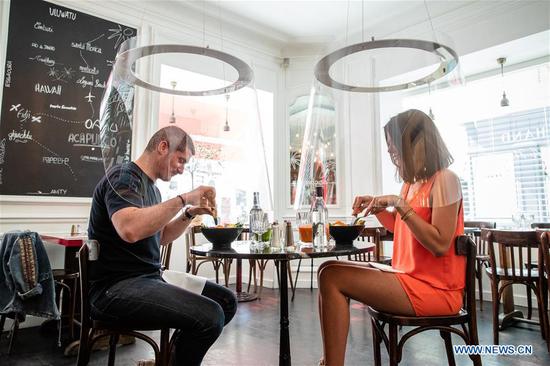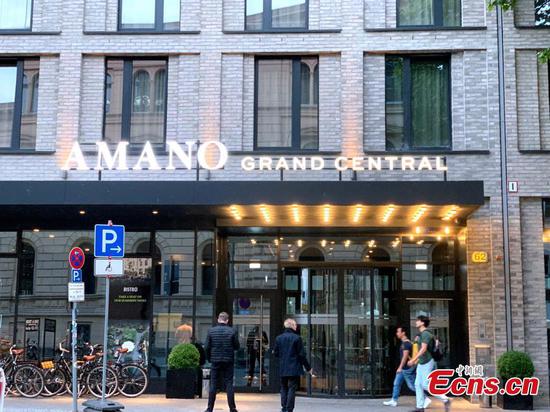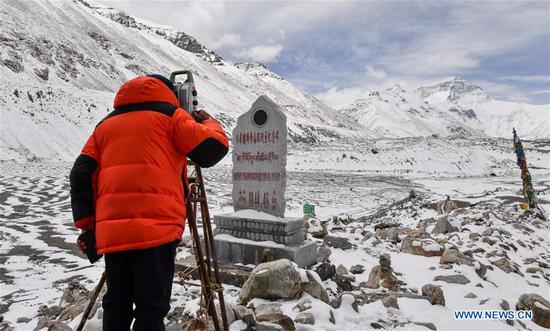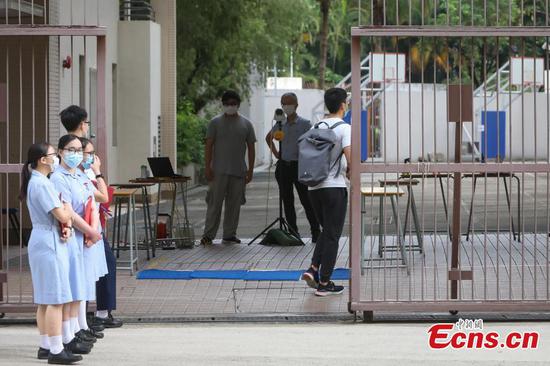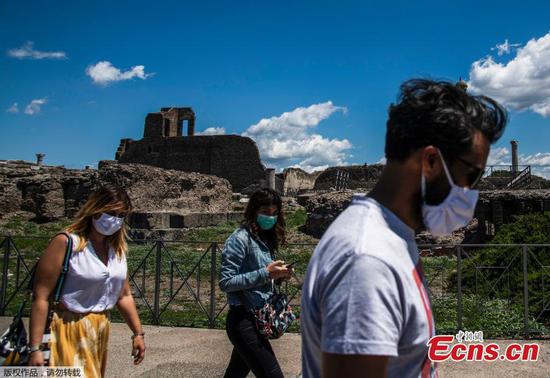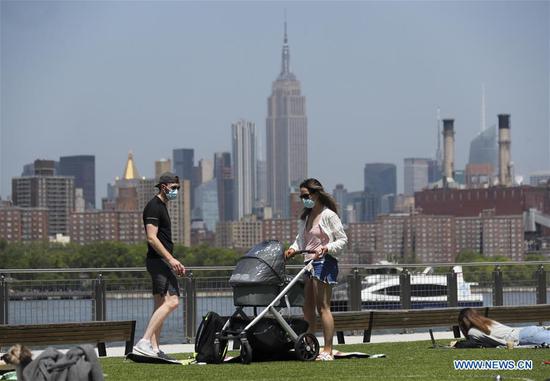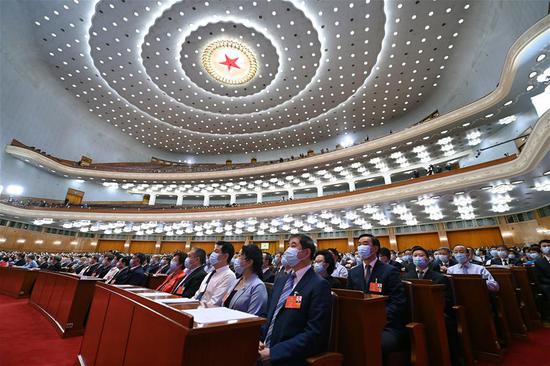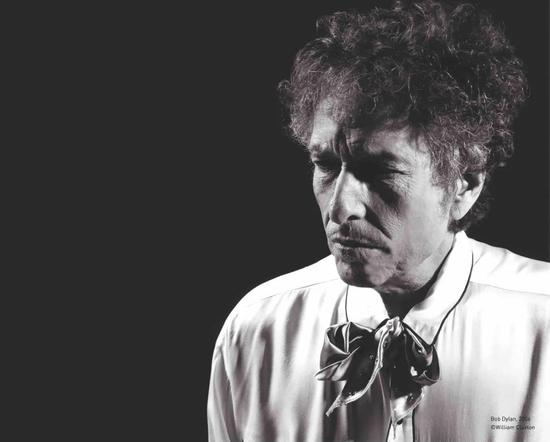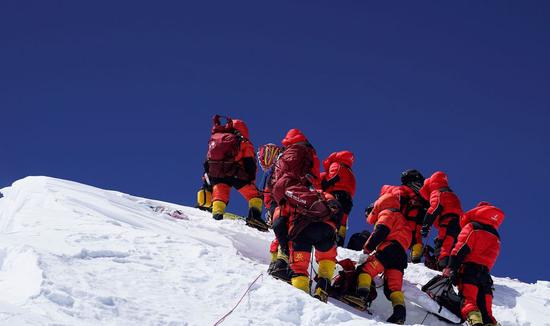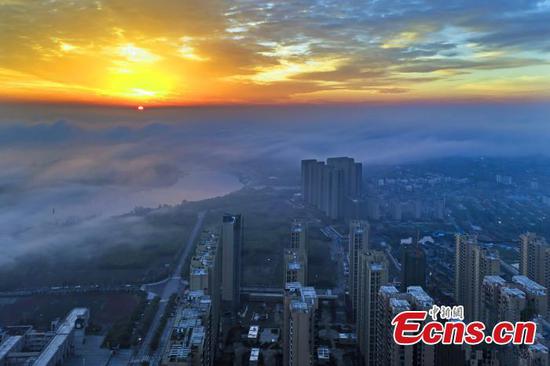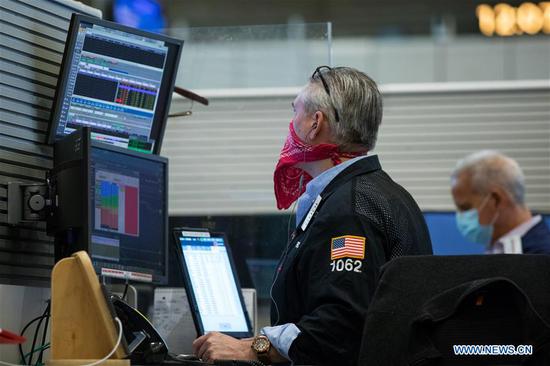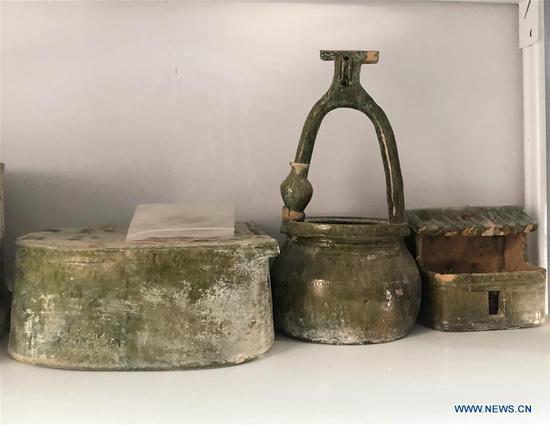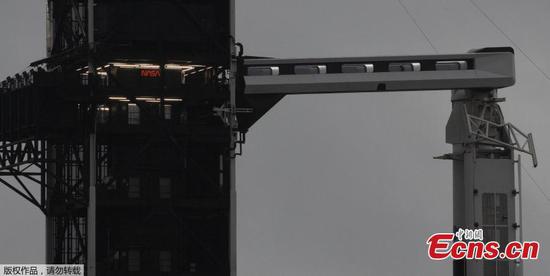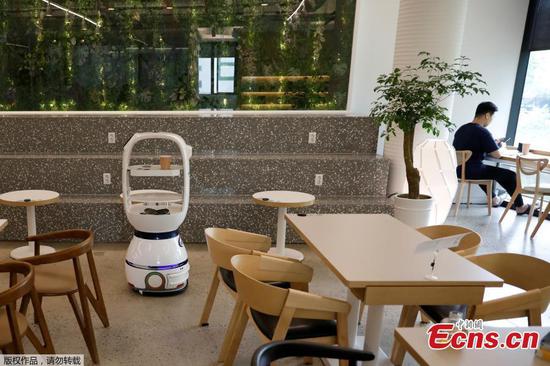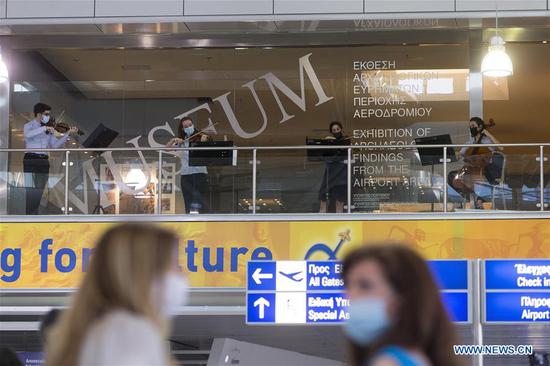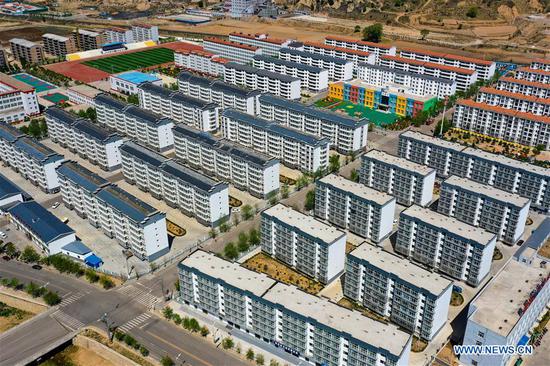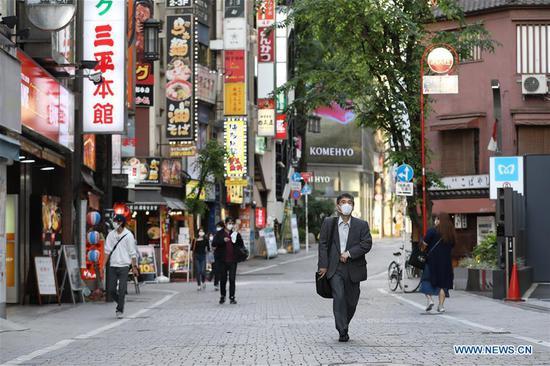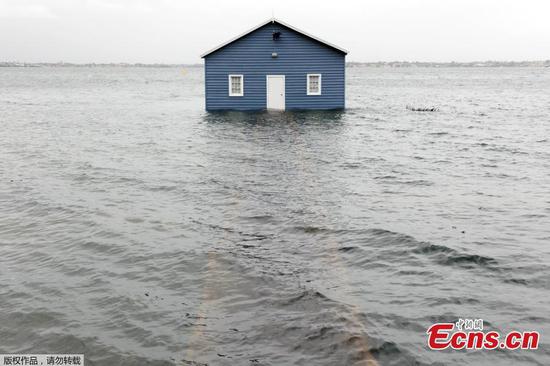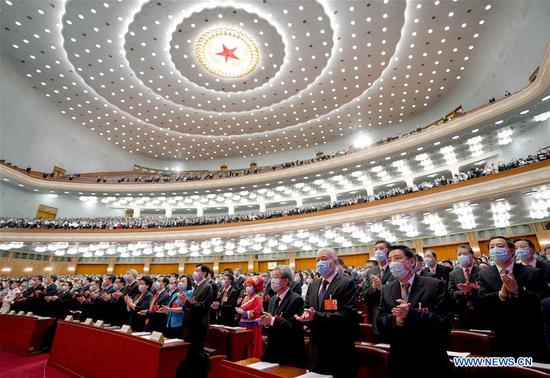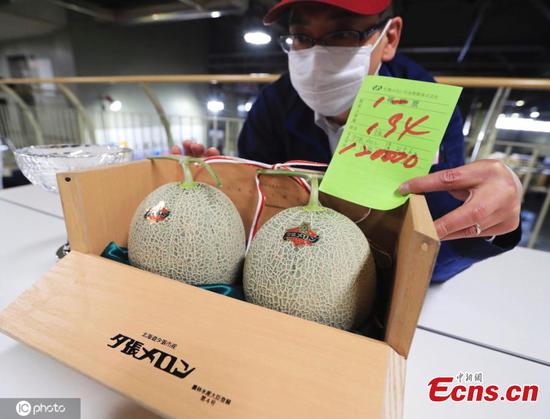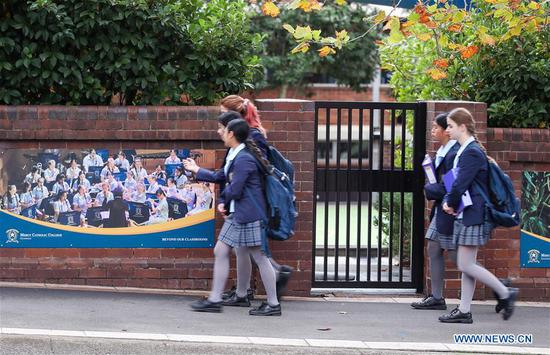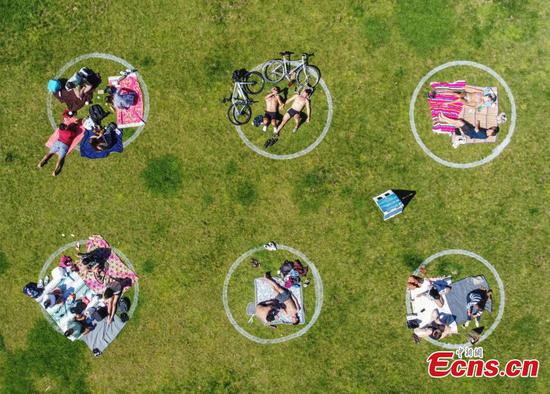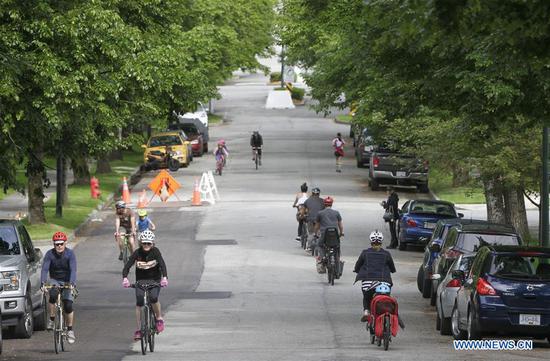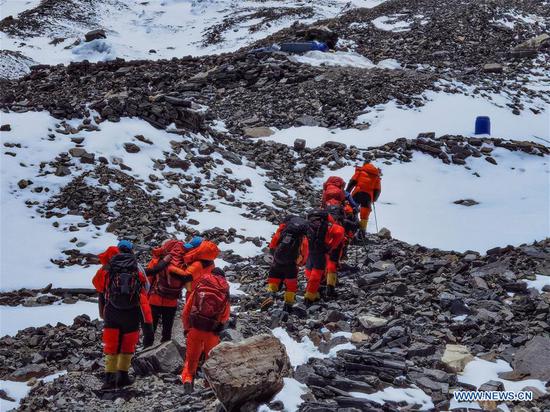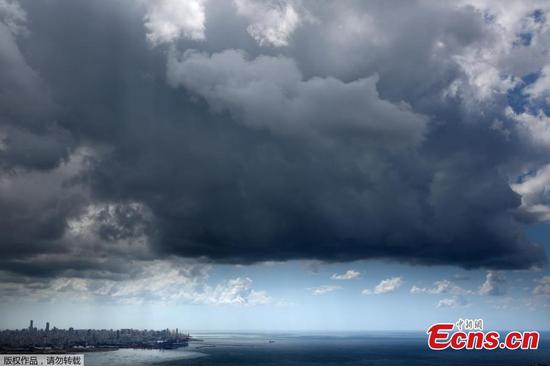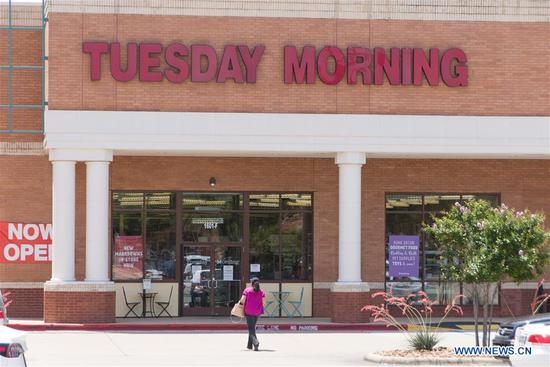
Photo taken on May 27, 2020 shows a Tuesday Morning store in Plano of Texas, the United States. U.S. off-price retailer Tuesday Morning has filed for bankruptcy protection amid the COVID-19 pandemic, the company said Wednesday. (Photo by Dan Tian/Xinhua)
The United States has been known for decades as a place where people "shop 'til you drop," and Spend! Spend! Spend!
The COVID-19 pandemic, however, might be facilitating changes in Americans' spending habits.
With the country on lockdown, the country's personal savings rate has surged overnight to historic highs.
After all, there is not many places where you can walk in and unload your wallet.
With the pandemic lockdown putting millions of Americans out of work - the jobless rate has exploded to near 15 percent - many Americans are saving more in case they fall on hard times.
"I think I am saving more money during the lockdown. No gas, lunch money, less spending on clothes," an IT worker in the Washington D.C. area, who gave her name as Sherill Kozchek, told Xinhua.
Indeed, Americans are suddenly saving at a rate not seen since 1981, according to the U.S. Bureau of Economic Analysis (BEA).
The BEA reported on April 30 that the savings rate skyrocketed to 13.1 percent in March - an increase from 8 percent in February, before the lockdown. That amounted to Americans having 2.17 trillion U.S. dollars in savings in March.
For the sake of comparison, that puts the personal savings rate near that of Germany's 2019 rate of 10 percent, according to figures from the Organization of Economic Co-operation and Development (OECD), published before the lockdown.
Savings are likely driven by a decline in consumer spending due to so many businesses closing amid the lockdown. The BEA also reported that consumer spending dropped by 7.5 percent. Americans spent less on recreation, non-essential medical care and cars. Spending went up on food eaten at home, the BEA found.
SAVINGS RATES RISING SLOWLY FOR YEARS
Over the past couple of years, Americans' savings rates have slowly been on the rise.
"The savings rate had risen dramatically in the last couple years already," according to Robert Frick, corporate economist with Navy Federal Credit Union, in a recent tweet.
"Speculation is people were bracing for the next recession," Frick added.
Indeed, the personal savings rate in November and December 2019, a few months before the coronavirus hit the United States, was 7.8 percent and 7.6 percent, respectively, according to the BEA's website. That's two or three times the rate of savings during many months in 2017, just a couple of years back, according to the BEA website.
Clay Ramsay, a senior research associate at the Center for International and Security Studies at University of Maryland, told Xinhua that currently, "those with jobs are tending to hold cash to the degree that they can. Those without jobs will be more likely to save when they are earning again. This happened after the 2008 crash."
While Americans' personal savings rates are on the rise, there are many reasons they didn't save in the past.
Ramsay noted that college education, which is the basis for higher earnings, is increasingly expensive and has created a debt load on society for many years.
Second, the United States pays nearly double the health expenses of similar high-income countries, and this is reflected in individuals' expenses.
Some economists fret that the virus will spur the onset of deflation - a debilitating phenomenon that occurred during Japan's so-called "lost decade" between 1991 and 2001.
Deflation happens when people stop spending money. That means sellers make less money, which leads to a vicious cycle in which workers earn less and cannot afford the consumer spending that drives the economy.
But at the same time, it's in Americans' nature to spend, and deflation worries may be inflated.
Janice Kim, a logistics professional in the D.C. area, told Xinhua: "I spend less on dining but that has become an excuse to spend the money elsewhere!"









